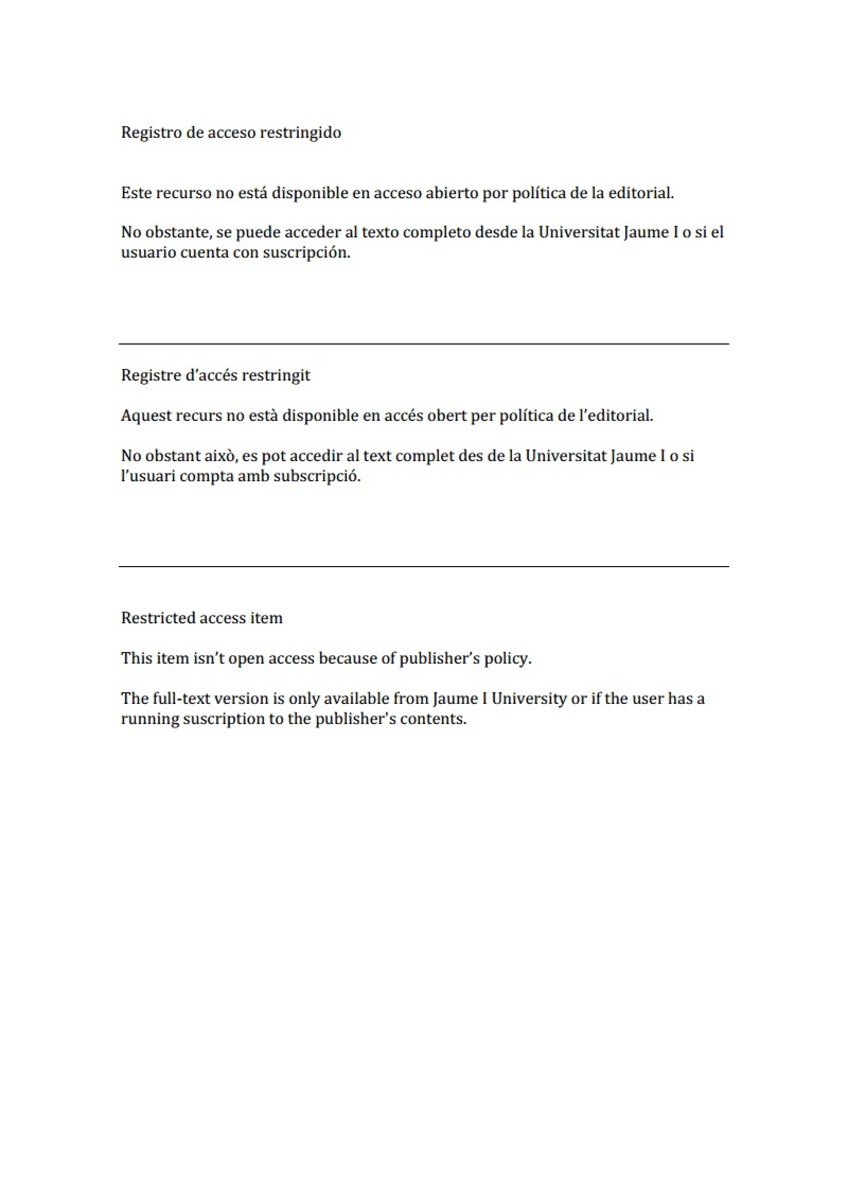Mostrar el registro sencillo del ítem
Prenatal and postnatal insecticide use and infant neuropsychological development in a multicenter birth cohort study
| dc.contributor.author | Llop, Sabrina | |
| dc.contributor.author | Julvez, Jordi | |
| dc.contributor.author | Fernández Somoano, Ana | |
| dc.contributor.author | SANTA MARINA, LORETO | |
| dc.contributor.author | Vizcaino, Esther | |
| dc.contributor.author | Iñiguez, Carmen | |
| dc.contributor.author | Lertxundi, Nerea | |
| dc.contributor.author | Gascón, Mireia | |
| dc.contributor.author | Rebagliato, Marisa | |
| dc.contributor.author | Ballester, Ferran | |
| dc.date.accessioned | 2014-05-12T18:17:13Z | |
| dc.date.available | 2014-05-12T18:17:13Z | |
| dc.date.issued | 2013 | |
| dc.identifier.issn | 0160-4120 | |
| dc.identifier.uri | http://hdl.handle.net/10234/92079 | |
| dc.description.abstract | There is little evidence about exposure to currently used insecticides during early life periods and adverse effects on child neuropsychological development. The aim of this study is to examine the association between residential insecticide use during pregnancy and infancy, and the development of children. Study subjects were participants in the INMA (Environment and Childhood) Project, a Spanish multicenter birth cohort study. Prenatal and postnatal use of indoor insecticides and other variables were obtained from personal interview during pregnancy and infancy. Mental and psychomotor development was assessed around 14 months using the Bayley Scales of Infant Development. The associations were analyzed by linear regression models. 54% of women used indoor insecticides at home during pregnancy and 47% postnatally. 34% of women used insecticide sprays and 33% used plug-in devices during pregnancy. During infancy, the percentage of women who used insecticide sprays decreased (22%), but the use of plug-in devices was similar to the prenatal period (32%). The use of insecticide sprays during pregnancy was associated with a decrement in psychomotor development (β = − 1.9; 95%CI: − 3.4, − 0.5) but postnatal use did not associate with mental and psychomotor development. The negative effect was enhanced according to some modifying factors, such as being female, higher levels of prenatal exposure to PCB and mercury and belonging to the lowest social class. We found certain evidence about the adverse effect of using insecticide sprays during pregnancy on the psychomotor development of children. Some socio-demographic factors and other exposures could enhance that effect. | ca_CA |
| dc.format.extent | 8 p. | ca_CA |
| dc.format.mimetype | application/pdf | ca_CA |
| dc.language.iso | eng | ca_CA |
| dc.publisher | Elsevier | ca_CA |
| dc.relation.isPartOf | Environment International, September 2013, vol 59 | ca_CA |
| dc.rights | Copyright © 2013 Elsevier Ltd. All rights reserved. | ca_CA |
| dc.rights.uri | http://rightsstatements.org/vocab/InC/1.0/ | * |
| dc.subject | Prenatal exposure delayed effects | ca_CA |
| dc.subject | Fetal development | ca_CA |
| dc.subject | Infant development | ca_CA |
| dc.subject | Neurobehavioral manifestations | ca_CA |
| dc.subject | Insecticides | ca_CA |
| dc.subject | Questionnaires | ca_CA |
| dc.title | Prenatal and postnatal insecticide use and infant neuropsychological development in a multicenter birth cohort study | ca_CA |
| dc.type | info:eu-repo/semantics/article | ca_CA |
| dc.identifier.doi | http://dx.doi.org/10.1016/j.envint.2013.06.010 | |
| dc.rights.accessRights | info:eu-repo/semantics/restrictedAccess | ca_CA |
| dc.relation.publisherVersion | http://www.sciencedirect.com/science/article/pii/S0160412013001281 | ca_CA |
| dc.type.version | info:eu-repo/semantics/publishedVersion |
Ficheros en el ítem
Este ítem aparece en la(s) siguiente(s) colección(ones)
-
MED_Articles [640]
Articles de publicacions periòdiques







